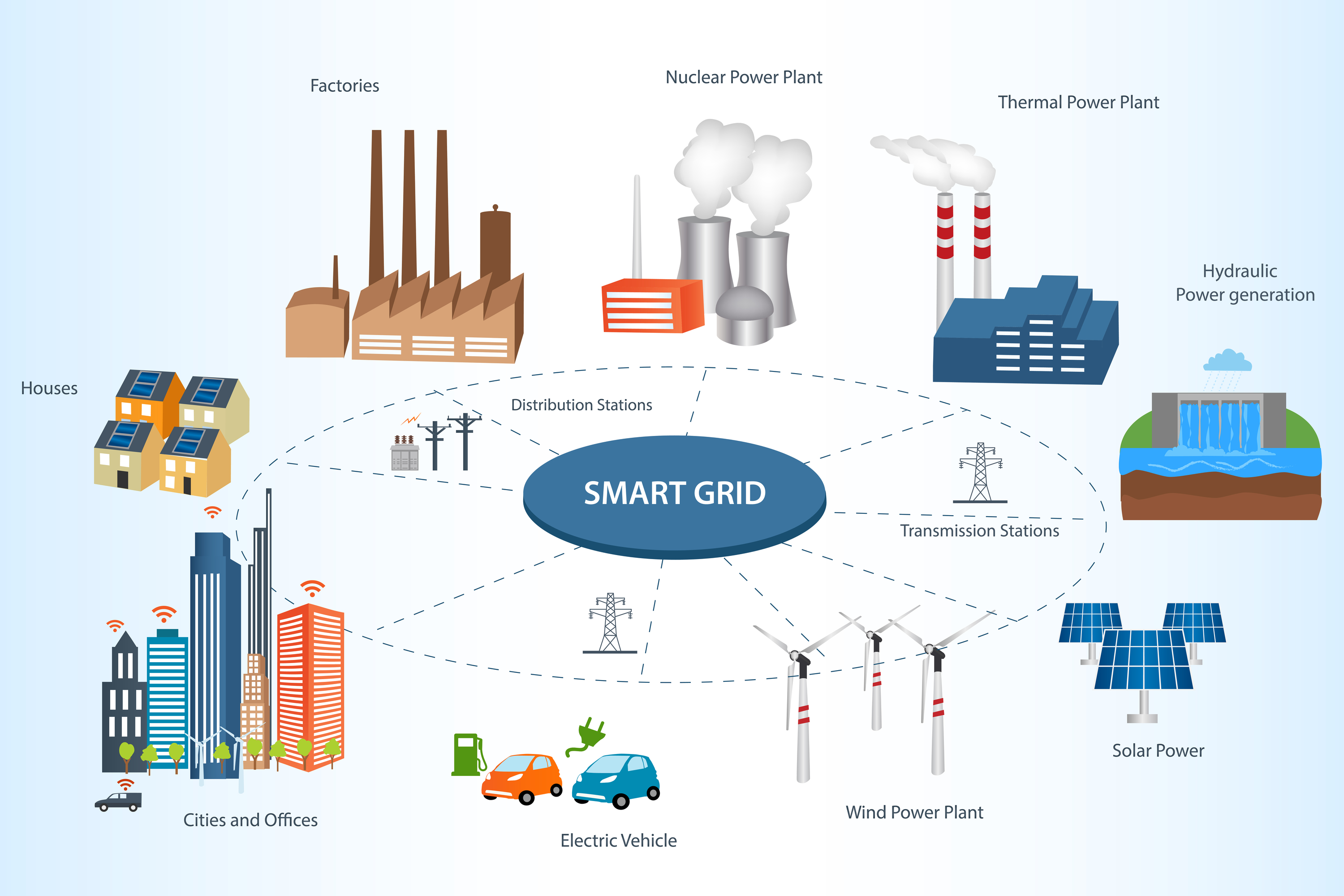The Role Of Civil Engineering In Developing Smart Grid Infrastructure

In recent times, India has been rapidly harnessing technological advancements to mobilize growth within the utility sector. One such technological leap that India has taken is the implementation of smart grid infrastructure in the Indian power sector. With an increasing demand for electricity by consumers nationwide, smart grid infrastructure in India is expected to witness high growth in the next few years.
Introduction to Smart Grid Infrastructure in India
Smart grid infrastructure refers to the use of automated control and monitoring systems that enable efficient and effective delivery of power. The traditional power grids are aging and cannot efficiently support the current demand for power. The smart grid infrastructure brings in a much-needed modernization in the power sector to ensure that the demand for power is efficiently and adequately met.
The Indian government has taken important steps towards the implementation of smart grid infrastructure in the country. The Ministry of Power has launched various initiatives to promote the adoption of smart grid infrastructure in the country. Currently, India has over 35 smart grid pilot projects in various stages of implementation across the country.
Advantages of Smart Grid Infrastructure in India
The implementation of smart grid infrastructure in India offers several advantages over the traditional power distribution systems. Some of these advantages include:
Reduced transmission losses:
The traditional power grid system is prone to transmission losses, which occur due to inefficiencies such as voltage drops and unwanted resistances. However, with the implementation of smart grid infrastructure, the inefficiencies can be significantly reduced, resulting in reduced transmission losses.
Improved power quality:
The smart grid infrastructure ensures efficient transmission of electricity, which leads to improved power quality. Improved power quality refers to an uninterrupted and reliable power supply to the end consumers.
Increased energy efficiency:
Smart grid infrastructure helps in increasing energy efficiency by reducing wastage and optimizing the consumption of electricity. This, in turn, leads to reduced energy bills for consumers.
Implementation Status of Smart Grid Infrastructure in India
The Indian government has already started implementing smart grid infrastructure in various parts of the country. Presently, there are over 35 smart grid pilot projects across India. These projects are being implemented in various states, including Karnataka, Uttar Pradesh, Gujarat, and Maharashtra. The implementation of these pilot projects will lead to the efficient delivery of power to the consumers, reduced transmission losses, and increased energy efficiency.
FAQs about Smart Grid Infrastructure in India
Q.1 What are the objectives of the smart grid infrastructure in India?
The primary objectives of the smart grid infrastructure in India include:
- Enhanced Grid Security
- Improved Power Quality
- Efficient Energy Consumption
- Reduced Transmission Losses
Q.2 How does smart grid infrastructure help in improving power quality?
Smart grid infrastructure helps in improving power quality by ensuring an uninterrupted and reliable power supply to the end consumers. The infrastructure helps in efficiently transmitting electricity, which reduces the risk of power outages and voltage fluctuations.
Q.3 Which states in India have implemented the smart grid infrastructure?
Presently, the smart grid infrastructure has been implemented in several states across India. Some of these states include:
- Karnataka
- Uttar Pradesh
- Gujarat
- Maharashtra
Q.4 Will the implementation of smart grid infrastructure in India reduce energy bills for consumers?
Yes. The implementation of smart grid infrastructure in India will help in reducing energy bills for consumers. This is because the infrastructure helps in increasing energy efficiency by reducing wastage and optimizing the consumption of electricity.
Q.5 How will the Indian power sector benefit from the implementation of smart grid infrastructure?
The Indian power sector will benefit significantly from the implementation of smart grid infrastructure. The infrastructure will ensure efficient delivery of power to the consumers, reduced transmission losses, and increased energy efficiency. This, in turn, will lead to reduced energy bills for consumers and improved revenue generation for the power sector.
Conclusion
The implementation of smart grid infrastructure in India is a giant stride towards the modernization of the electricity sector and the efficient delivery of power to consumers. Its numerous advantages have earned it a top priority in the Indian power sector, evident by the multiple pilot projects that are currently underway. With the widespread adoption of smart grid infrastructure, India can achieve its power security goals and the sustainable development of its power sector.


Post a Comment for "The Role Of Civil Engineering In Developing Smart Grid Infrastructure"